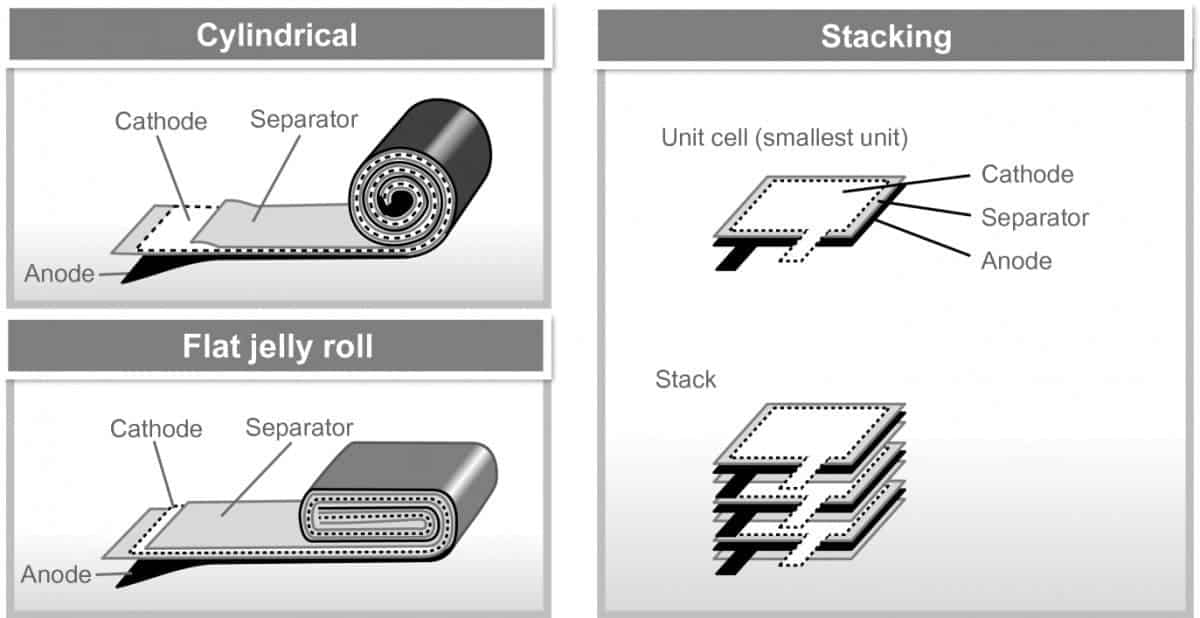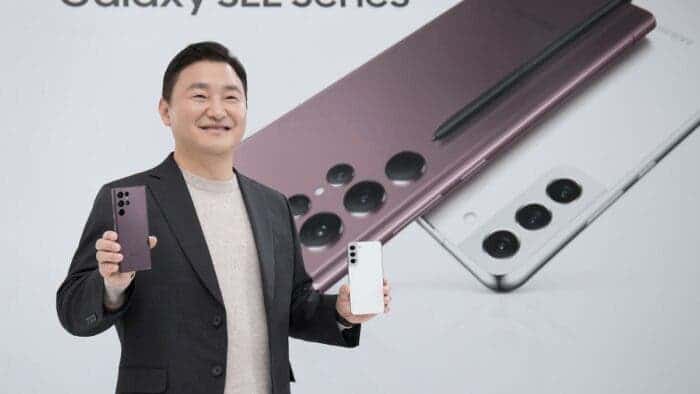Samsung would like to improve the autonomy of its smartphones by equipping them with a battery technology that has so far only been used in the automotive industry. The size of the batteries of future smartphones could thus increase significantly.
Samsung SDI, a group company specializing in the production of batteries, has started production of the fifth generation of batteries for electric vehicles. Unlike traditional batteries, the new ones will use a stacking method rather than the usual “jelly roll” method, as you can see in the image below.
Switching to a stacked design similar to that used in electric car batteries could result in a 10% or more increase in capacity for a battery of equivalent size. This is the first time that Samsung plans to use stacking technology in smaller batteries for phones, instead of large cells in electric vehicles, and the company is said to have already set up a production line for these batteries. in Korea, as well as a test line in China.

Samsung will improve the autonomy of its smartphones thanks to batteries inspired by electric cars
If Samsung were to use this new technology in its next high-end smartphone, the Galaxy S23; it could see its autonomy greatly increased. Indeed, it would allow, for example, the Ultra model to use a 10% larger battery than the Galaxy S22 Ultra; that is to say 5500 mAh, without the smartphone becoming thicker.
Using the stacking process, energy density can increase by more than 10%. For example, if the battery capacity of the latest Galaxy S smartphone is 5000mAh, the stacking process can make it more than 5500mAh. Instead, notching equipment to make tabs of anode and cathode materials; and stacking equipment to properly stack these materials are in need.
For its part, Xiaomi also announced new technology last year promising a 10% increase in battery capacity; for the same size as previous generations. Also, for this, the Chinese manufacturer has notably increased the silicon content of the electrodes; and used an improved packaging technology that shrinks and bends the control circuits.
Adopting a stacked design for the battery could also allow manufacturers to improve the power of fast charging their devices. For example, they could adopt a new technology recently developed by researchers; capable of fully recharging a battery in just 5 minutes.
Currently, ATL (Amperex Technology Limited) in China is the main supplier of iPhone batteries. Some battery cells are the production of LG Energy Solutions. Samsung SDI has supplied batteries to MacBooks and iPads.





